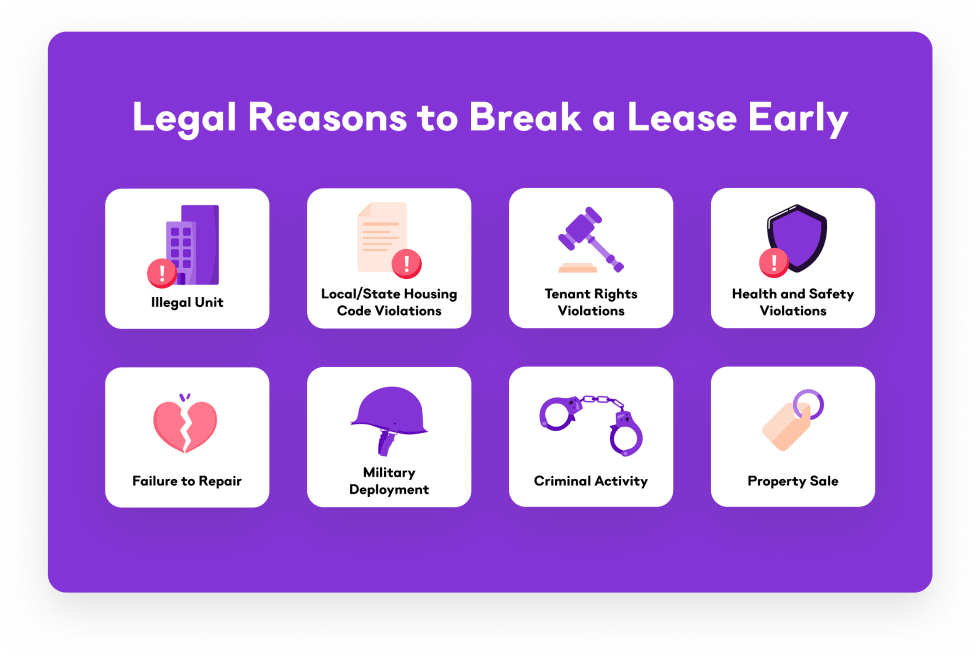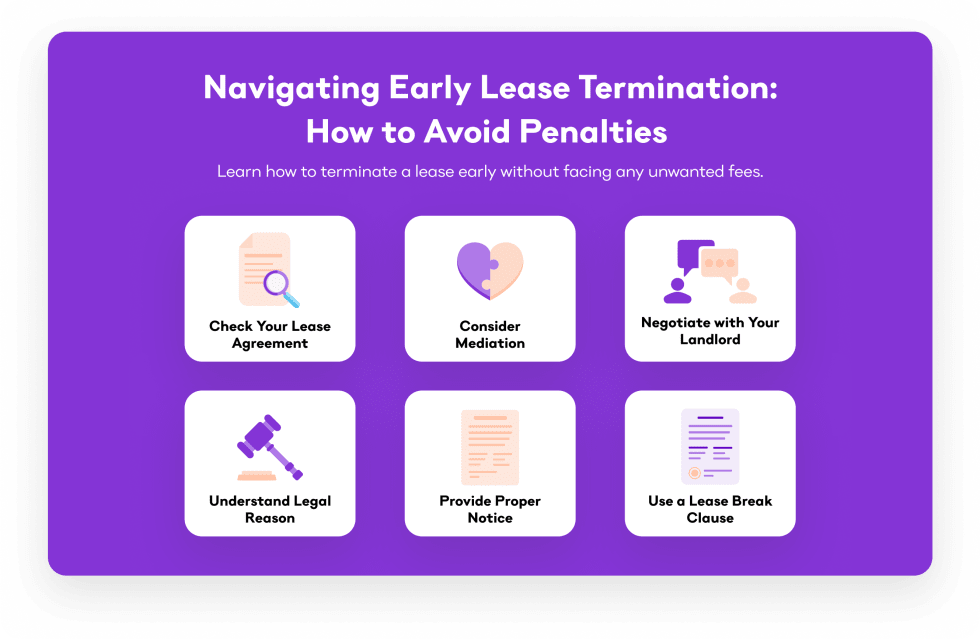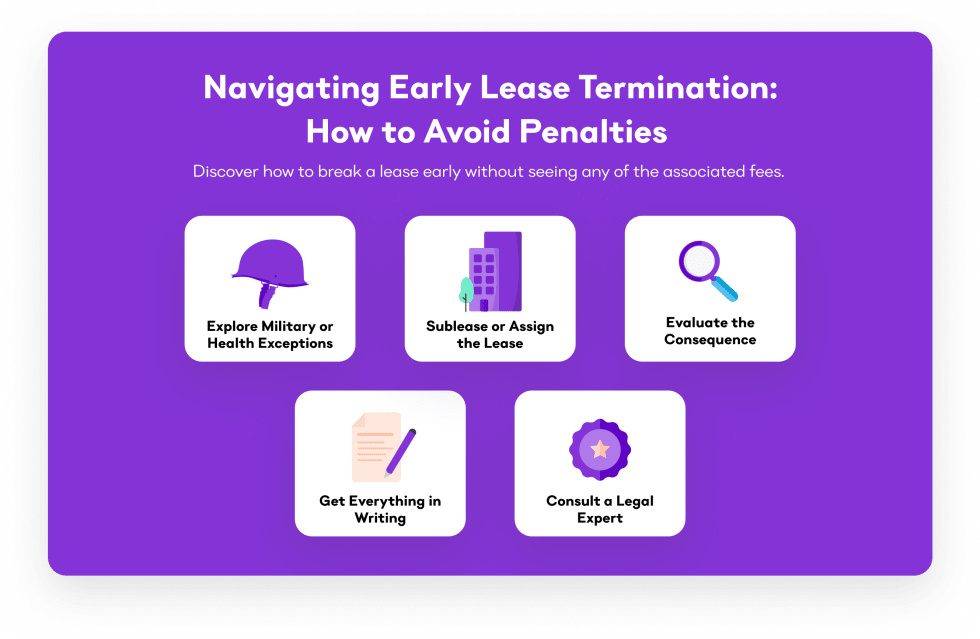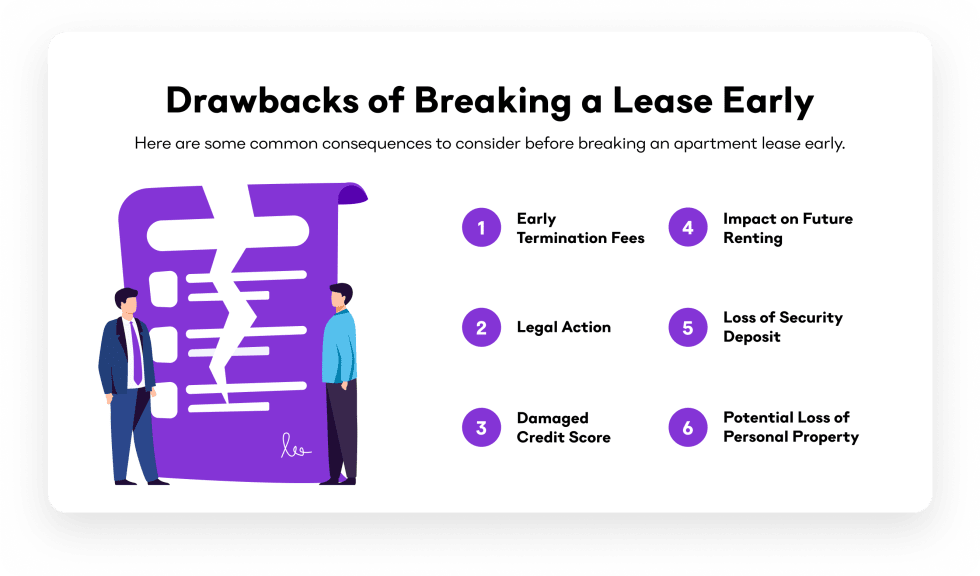South Bank at Quarry Trails
- 93 units available
- Studio • 1 bed • 2 bed • 3 bed
- Amenities
In unit laundry, Patio / balcony, Granite counters, Pet friendly, Stainless steel, Walk in closets + more

If you need to terminate a lease early, there's more to do than let your landlord know and start packing. When you sign a lease of some duration, you are legally obligated to pay the rent during that period. If you don't make some arrangements with your landlord, or take advantage of the early termination clause in your lease, you could end up in court, and face marks on your credit and rental history.
However, when you keep in mind that your landlord simply wants to make sure that your unit is occupied so they can continue to collect rent, and if you approach the problem thoughtfully, there are often ways around the expense. Knowing how to break a lease without penalty can save you a bundle and alleviate stress.
Many leases contain an early termination clause that outlines any early penalties or fees for breaking a rental lease, usually a few months' worth of rent. If you pay these fees, you will be able to break your lease without any legal or other penalties.
Consider the timing of your leave as well. If your lease requires you to pay three months rent to terminate early, but you only have two months left on your lease, it might be best just to pay your rent as usual. Whatever you decide, talk to your landlord if you have any questions about provisions for early lease termination in your rental agreement.
There are ways to avoid penalties and break your lease without breaking the law. These legal reasons to end a lease early can prevent fines and get your landlord on board:
Before you talk to your landlord, look into all the legal reasons you may be able to break your lease without penalty. The more informed you are, the better the conversation will go.

Depending on your landlord, they may be open to negotiating on ending a lease early. For example, if the market value of your apartment has gone up, they may jump at the chance of breaking your apartment lease to raise rent. Similarly, if your apartment has a long waitlist, they may be able to fill your unit quickly and with little financial loss.
If you decide to approach your landlord about breaking your lease, here are some things you can do to have a successful conversation:

If your lease agreement allows you to arrange for a sublet, do reach out to have a conversation about subletting with your landlord. Let them know you will be seeking someone to finish out the remainder of your lease. In some cases, like if your apartment has a waiting list, your landlord may even be able to help you find a sublet.
Here are some tips for finding a sublet to take over your lease:
Breaking a lease with or without penalties isn’t always possible and could lead to severe consequences, including:
When you break a lease, you’re likely to face some kind of financial repercussions. So make sure you can cover your losses.

Consider options with minimal losses if you can’t avoid a penalty altogether.
With some ingenuity, you may be able to negotiate down the penalty or get out of it altogether.
If you manage to break your lease without penalty, make sure to get all the details in writing. A simple misunderstanding between you and your landlord could escalate to a legal issue.
If you do break your lease early without legal cause or making an arrangement with your landlord, you could be legally responsible for the rent you were required to pay up to the point that your landlord is able to find a new tenant. In order to recover their losses, your landlord will have to take you to court.
Additionally, a landlord may be able to convince the court that you are responsible for other losses they incurred as a result of having to fill your vacancy. Finally, the penalties you face could impact your credit and rental history.

There are solutions if you're trying to figure out how to terminate a lease early without paying the consequences. Exploring your legal options and keeping the lines of communication open with your landlord are your best strategies for success.
If you break a lease, document everything and do your best to mitigate your losses, protect your credit score, and move out on good terms with your landlord.
If you're looking for a new place, take our quiz to get matched with your perfect apartment!
An early termination clause is a section of your lease that outlines what fees you need to pay in order to break it. These are common in leases but not ubiquitous. Your first step in seeking to break a lease should always be to check your agreement.
A month-to-month lease, also known as a short-term lease, is a rental agreement with no fixed end-date. It generally renews monthly until the landlord or tenant decides to end the lease. If you sign a month-to-month lease, you won't need to worry about early termination, as you can usually let your landlord know 30 days in advance when you plan to move out.



In unit laundry, Patio / balcony, Granite counters, Pet friendly, Stainless steel, Walk in closets + more
In unit laundry, Granite counters, Hardwood floors, Dishwasher, Pet friendly, 24hr maintenance + more